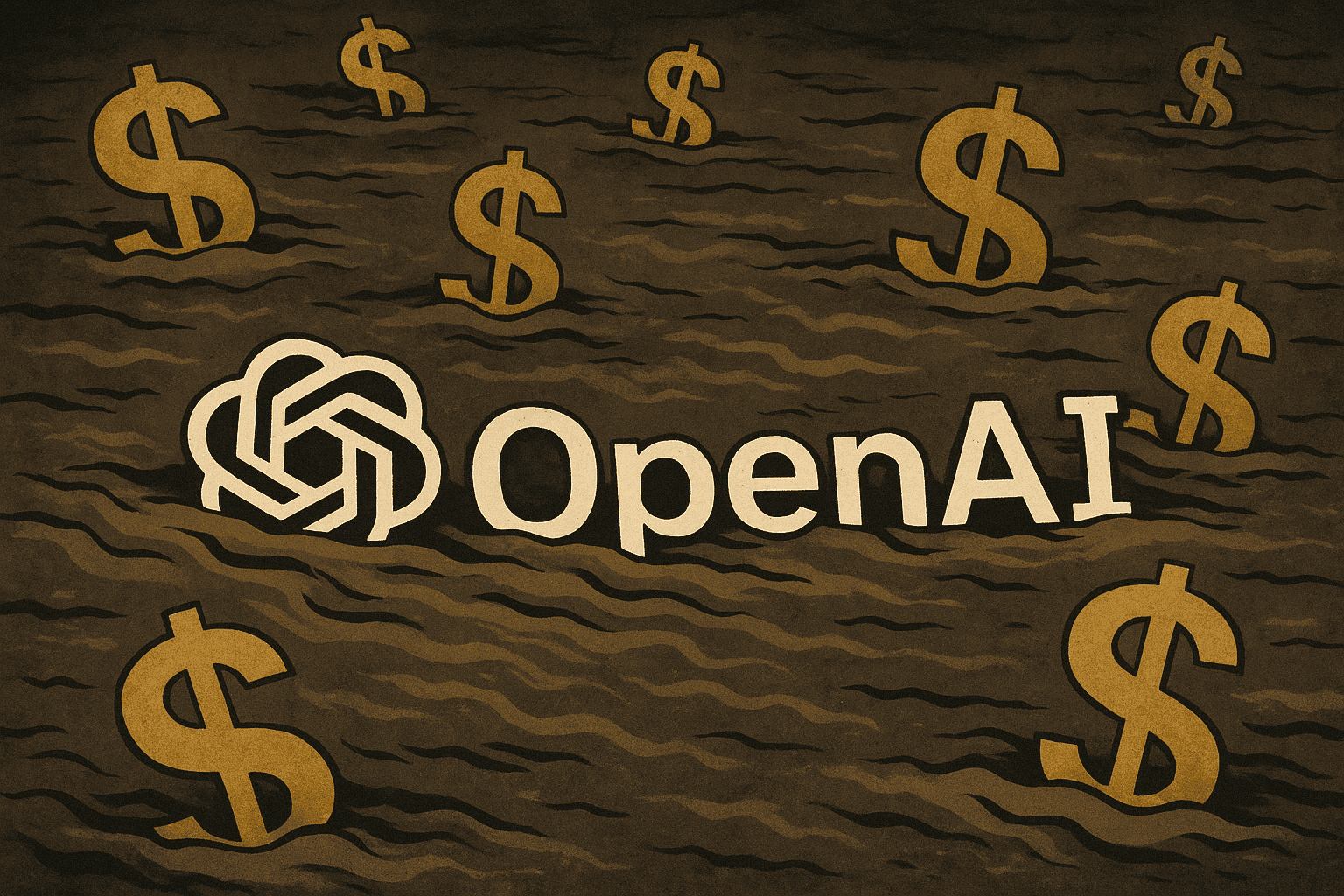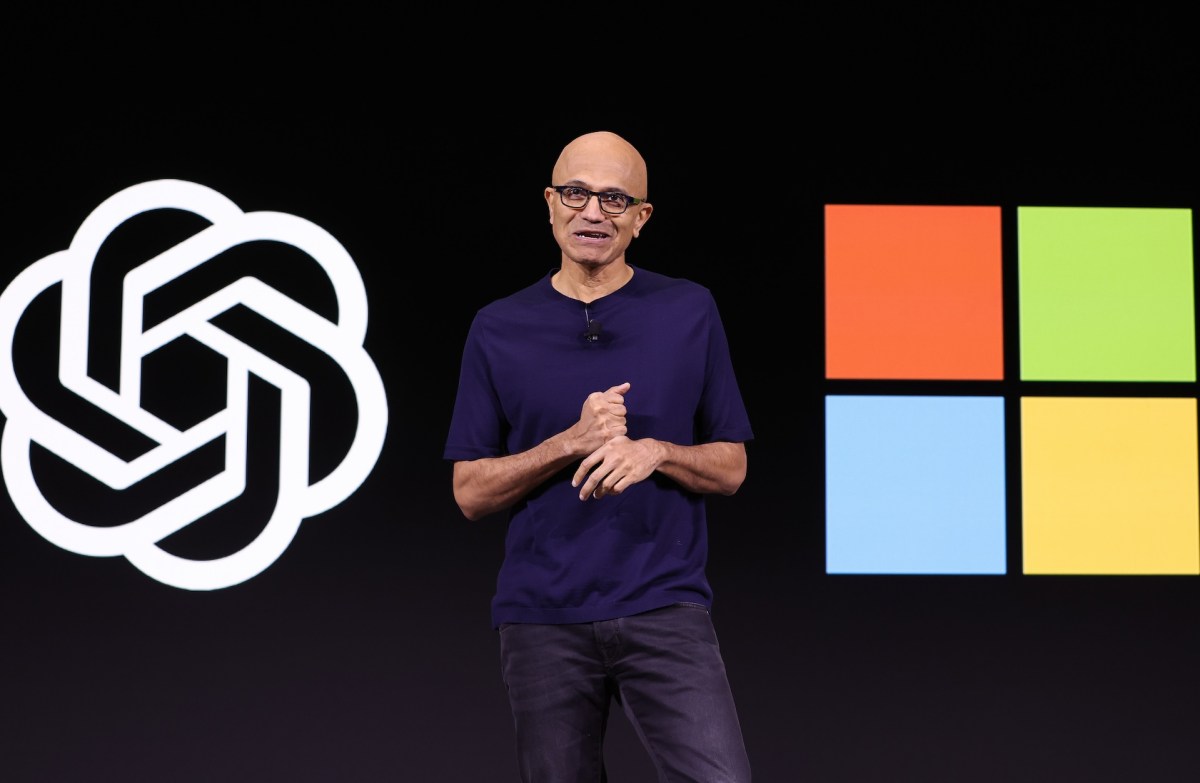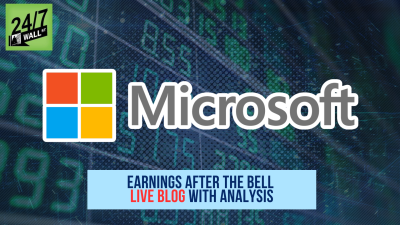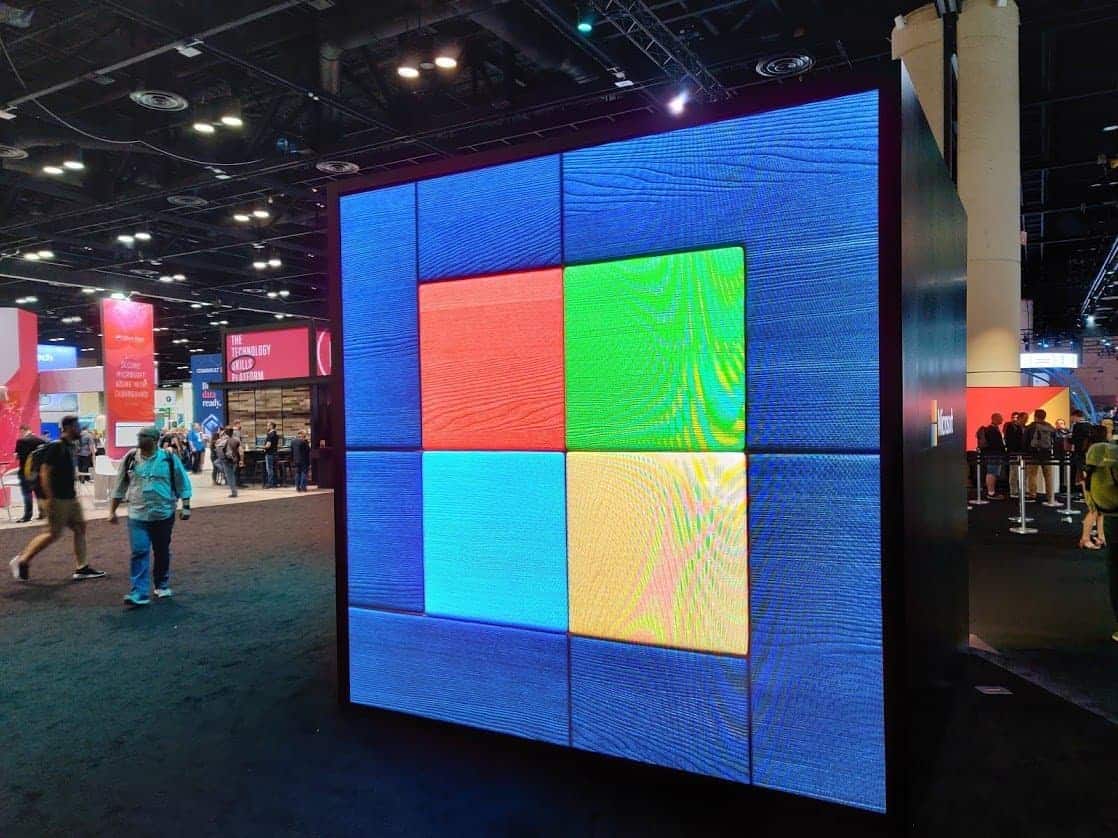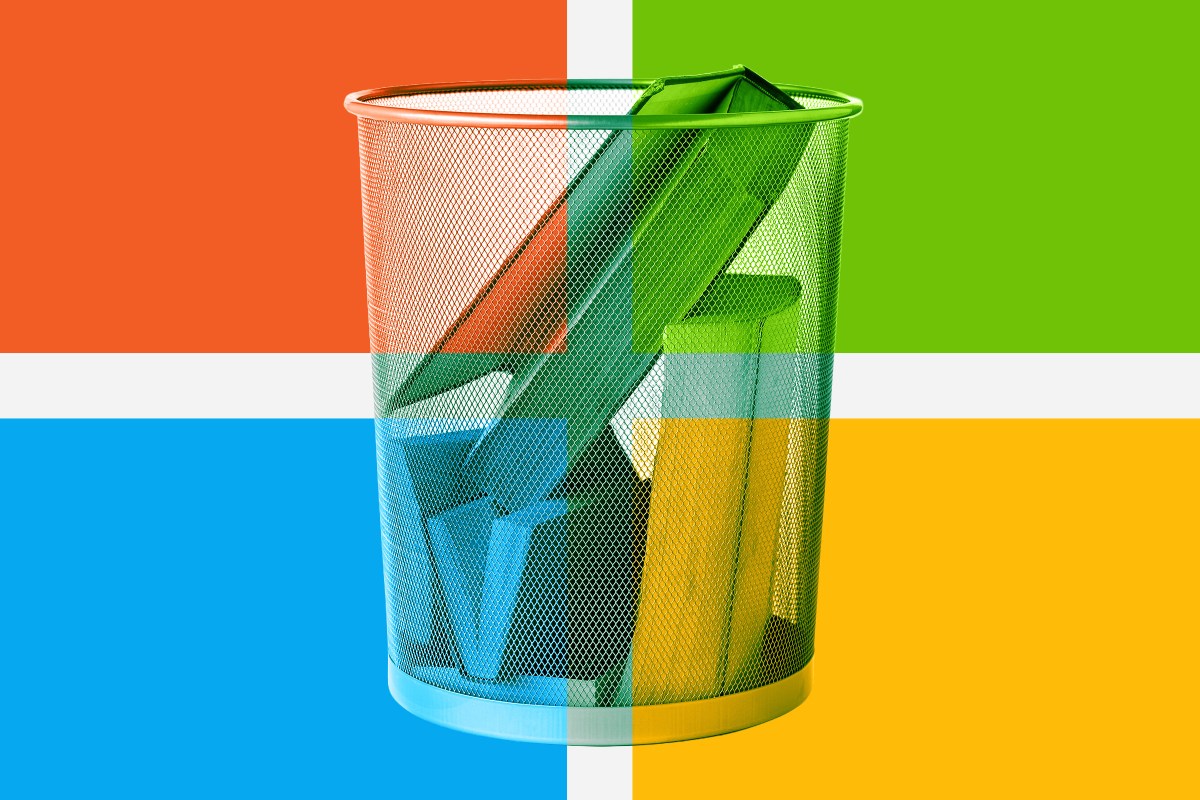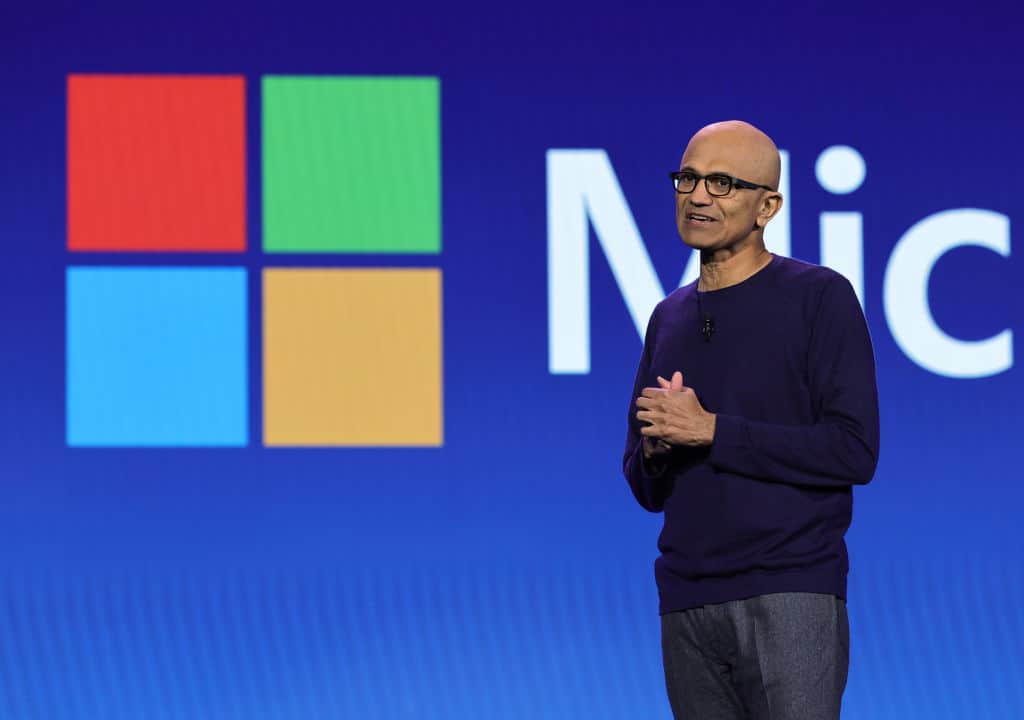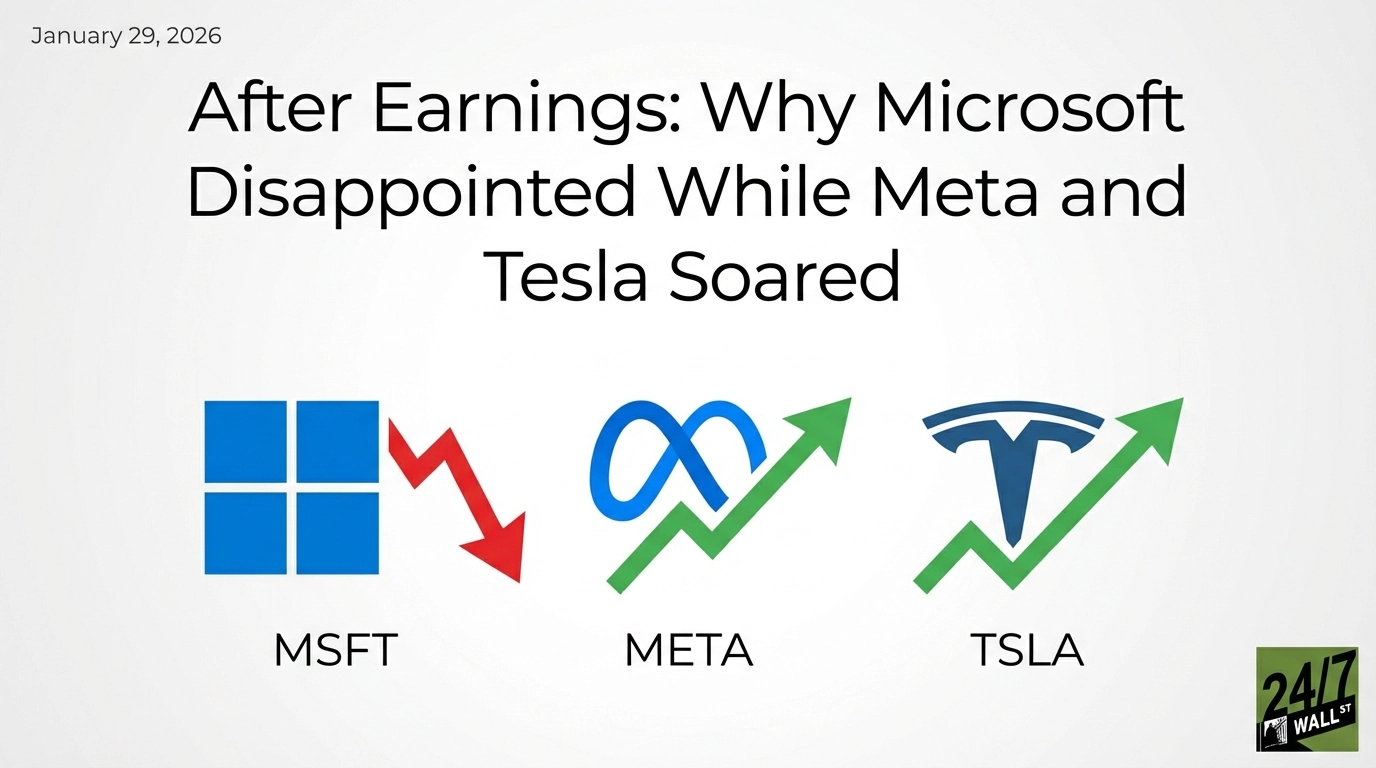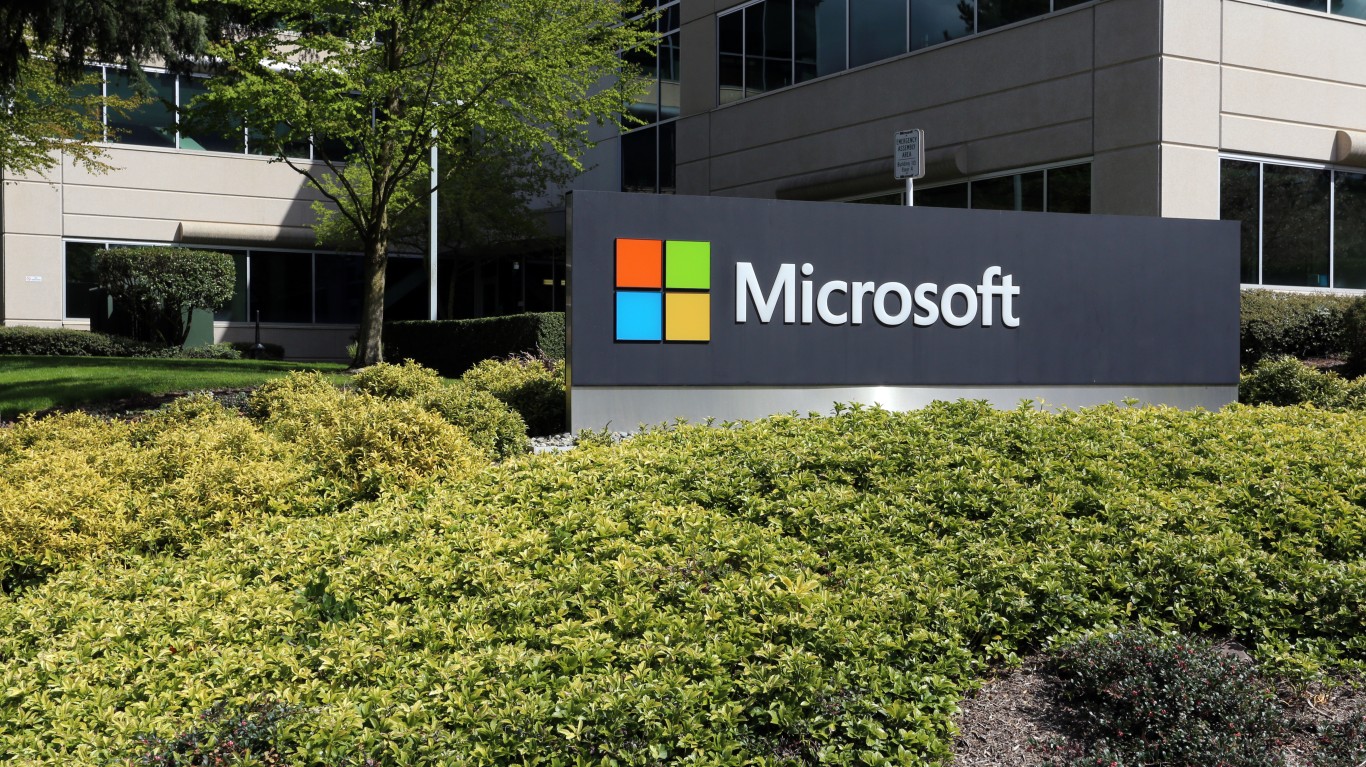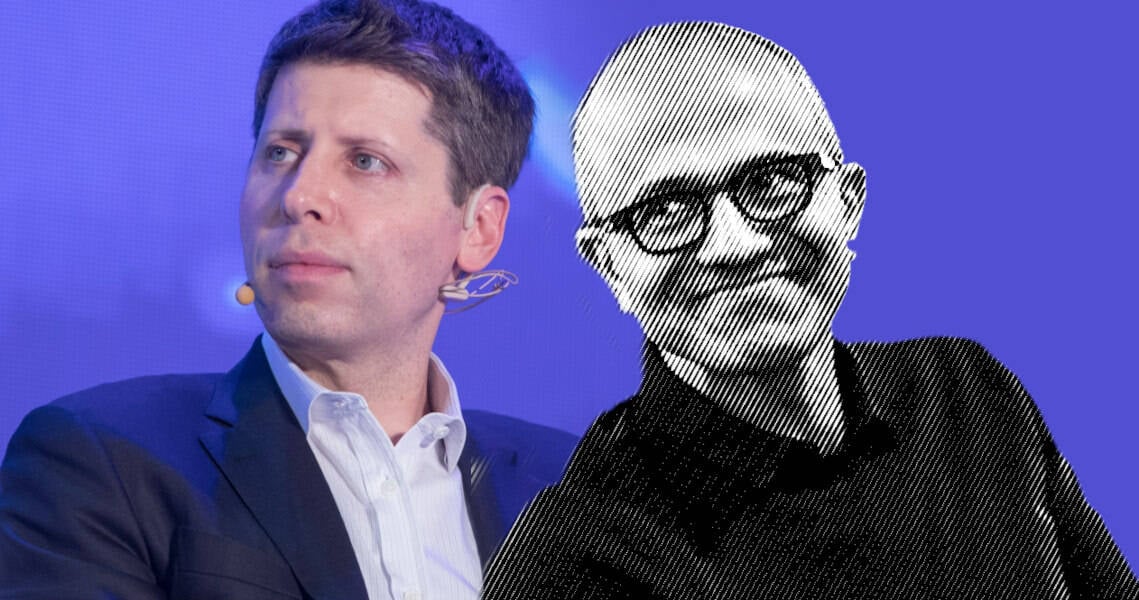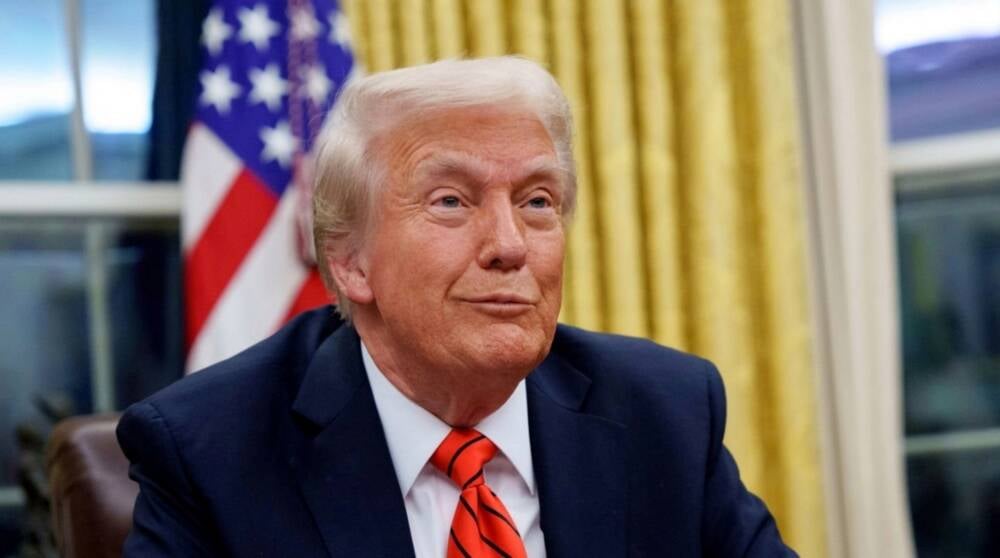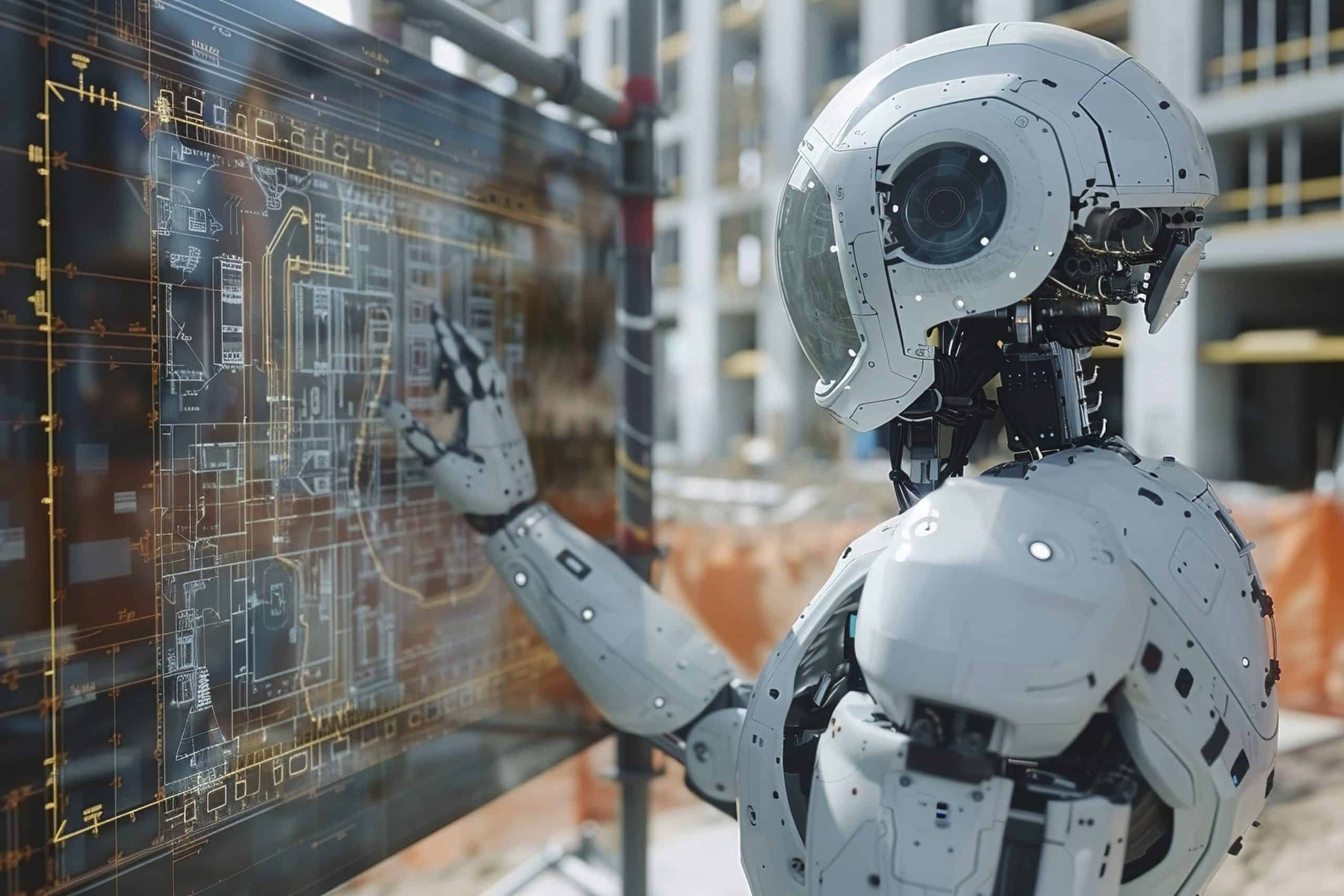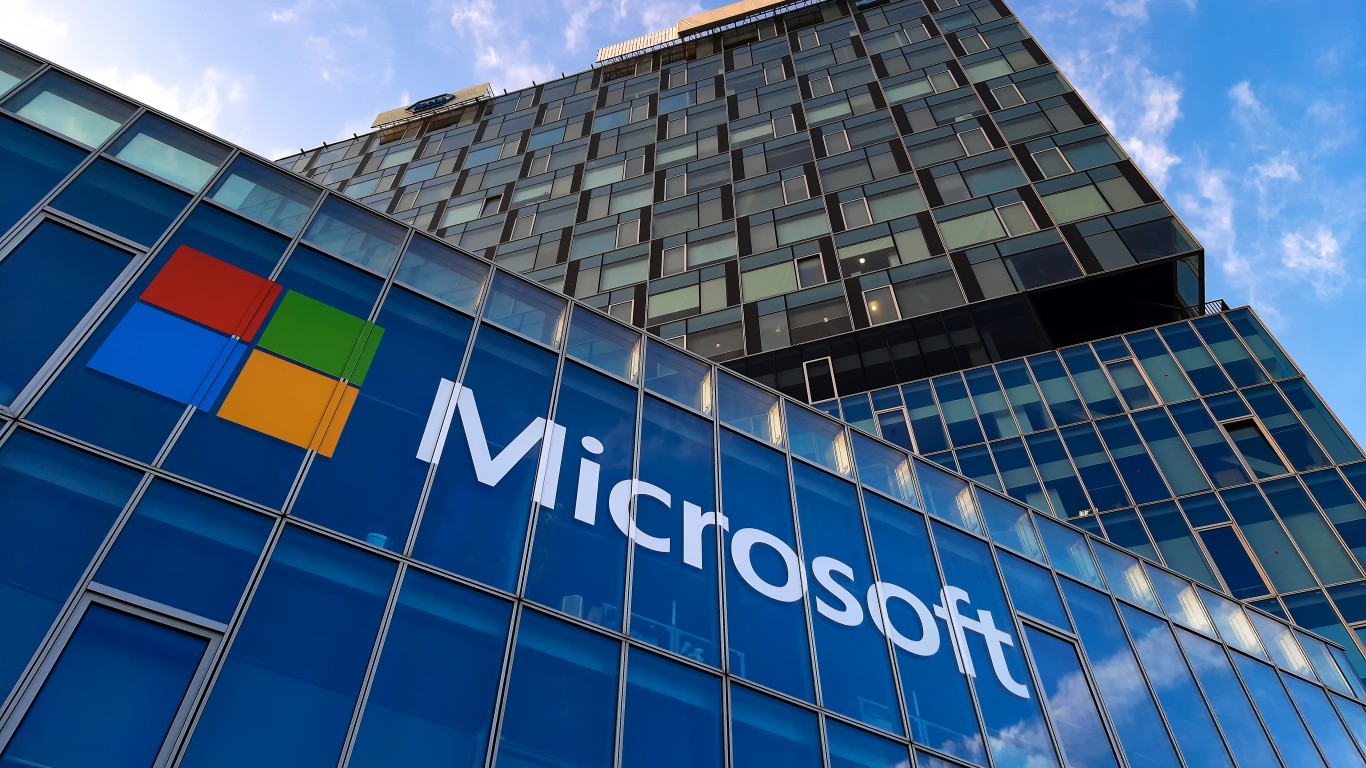#microsoft
#microsoft
[ follow ]
fromTheregister
2 weeks agoMicrosoft asks UK Parliament to correct US sanction evidence
The software and cloud biz has now asked for the record to be changed after Hugh Milward, Microsoft senior director of corporate, external and Legal, told the House of Commons Business and Trade Committee that the ICC - "not Microsoft" - decided to turn off email services to Karim Khan, the ICC chief prosecutor sanctioned by US President Donald Trump.
Miscellaneous
Information security
fromFuturism
2 weeks agoMicrosoft Added AI to Notepad and It Created a Security Failure Because the AI Was Stupidly Easy for Hackers to Trick
Forced AI integration across Windows and core Microsoft software is increasing instability and security vulnerabilities, exemplified by a Notepad remote code execution zero-day and privacy risks.
from24/7 Wall St.
2 weeks agoAmazon and Microsoft Enter Bear Markets: What's Breaking the Magnificent 7?
The Damage Report Amazon closed at $199.60 on February 12th, down 13.5% year-to-date and 17.7% over the past month. The stock peaked at $258.60 within the last 52 weeks, meaning it has fallen roughly 23% from that high. The decline accelerated sharply in early February, with the stock's RSI dropping to 23.46, deep into oversold territory and the lowest reading since the 2022 bear market.
Business
fromDigital Trends
3 weeks agoAmazon could soon launch a marketplace for publishers to sell content to AI firms
According to recent reports, the company is talking to publishers about launching a marketplace where media sites can sell their content directly to companies building AI tools. The idea is to create a central hub where media outlets can license articles, data, and other content to AI companies. At the moment, many AI models use information scraped from the web without clear agreements or compensation. This has sparked legal disputes and raised questions about ownership and how publishers should be fairly compensated.
Artificial intelligence
fromComputerworld
3 weeks agoAs Apple's Cook bows to Trump, Microsoft's Nadella quietly refuses
Those cliches reflected the way the company's founders and long-time CEOs were depicted as well: Steve Jobs the rebel, Bill Gates the business drone. My, how times have changed. These days Apple CEO Tim Cook has become one of tech's Sycophants-in-Chief to US President Donald J. Trump, while Microsoft CEO Satya Nadella, in his own quiet way, has been the only tech exec to face the president down when necessary.
US politics
Artificial intelligence
fromBusiness Insider
4 weeks agoMicrosoft's new commercial CEO is making changes to his top ranks, internal memo shows
Judson Althoff promoted Deb Cupp to EVP and chief revenue officer of global enterprise sales to manage strategic accounts and refocus leadership on AI strategy.
fromThe Verge
4 weeks agoFormer Windows 8 boss recruited Epstein to help negotiate his messy Microsoft exit
Emails between former Windows boss Steven Sinofsky and Jeffrey Epstein, published by the Justice department on Friday, appear to show that Sinofsky constantly sought Epstein's advice as he negotiated his surprise exit from Microsoft in November 2012, forwarding emails to him in nearly real time as talks progressed. Sinofsky also appears to have paid Epstein for his help at the end of the process, and turned to him for assistance finding a new job with Apple or Samsung, according to the emails.
Gadgets
from24/7 Wall St.
4 weeks agoA $357B Slap in the Face: Why It's Time to Buy Microsoft Now
Microsoft ( NASDAQ:MSFT) shares are fresh off a historic decline following the release of some poorly-received quarterly earnings results. Undoubtedly, at its worst, shares shed more than 12% of their value in the session that followed the big reveal. The big headline was that $357 billion in value was wiped out. That's the worst day for the enterprise software icon and AI innovator since the 2020 stock market crash.
Business
fromTheregister
4 weeks agoSteven Sinofsky sought Epstein's advice on exiting Microsoft
The trigger was the Surface RT, Microsoft's first real attempt to muscle into Apple's hardware turf. By November 2012, Sinofsky was warning internally that it was going sideways fast. In an email to CEO Steve Ballmer and COO Kevin Turner, he said the device was "about to catastrophically fail in a very public way," with sales tracking at roughly one-tenth of even the lowest expectations.
Tech industry
fromAxios
1 month agoThe new math defining AI winners and losers
Analysts use discounted cash flow models to value companies. These models rely heavily on future cash flows and a "terminal value" which is how much the business is worth beyond the forecast period. For big tech companies investing big money into AI, that terminal number can look great, because they stand to benefit from their investments in the technology longer term.
Artificial intelligence
Artificial intelligence
fromTechCrunch
1 month agoSatya Nadella insists people are using Microsoft's Copilot AI a lot | TechCrunch
Microsoft's cloud revenue and profits rose, but massive AI-related capital expenditures have investors worried whether spending will produce faster product growth and higher profits.
fromGeekWire
1 month agoLinkedIn tops $5B in quarterly revenue for the first time, and its TikTok pivot is paying off
As Wall Street obsessed over Microsoft's Azure growth rates and OpenAI accounting, LinkedIn quietly crossed $5 billion in quarterly revenue for the first time in the Redmond company's December quarter, up 11%. That puts the business social network on an annual run rate of more than $20 billion. LinkedIn is known for its recruiting tools and job postings, but given overall weakness in the job market, the latest growth is being fueled by LinkedIn Marketing Solutions, its advertising business.
Tech industry
fromTechzine Global
1 month agoAI drives up water consumption at Microsoft data centers
In 2020, Microsoft President Brad Smith announced that the company would reduce its water consumption and even become "water positive" by 2030. This means that Microsoft would replenish more water than it consumes. At the time, this goal seemed achievable, but the rapid rise of generative AI has completely changed the playing field. The construction of new data centers has accelerated, and with it the need for water for cooling.
Environment
fromThe Drum
1 month agoMicrosoft swoops in to take over Skype for $8.5 billion but the price shocks some
The agreement has been approved by the boards of directors of both Microsoft and Skype, said Microsoft. "The acquisition will increase the accessibility of real-time video and voice communications, bringing benefits to both consumers and enterprise users and generating significant new business and revenue opportunities," the company said. "The combination will extend Skype's world-class brand and the reach of its networked platform, while enhancing Microsoft's existing portfolio of real-time communications products and services."
fromGSMArena.com
1 month agoA free, ad-supported tier is set to launch on Xbox Cloud Gaming later this year
There have been rumors about Microsoft working on a free, ad-supported tier for its Xbox Cloud Gaming service, and now we have solid proof coming straight from Microsoft. Some users report that they've spotted a new message saying "1 hour of ad-supported playtime per session," although there's no such tier just yet. It's a clear sign that the company is preparing a free tier, confirming earlier rumors.
Video games
fromComputerworld
1 month agoMicrosoft in 2026: Sunny skies or storm clouds on the horizon?
Expect this year to be filled with flux and uncertainty, thanks to lightning-fast changes wrought by AI, and by a Trump Administration that rules by whim and fiat rather than facts and law. So, I know it's something of a fool's game to make predictions about what the year ahead might bring for Microsoft. That said, I've never worried about being called a fool. So here are my five predictions for what Microsoft can expect in 2026.
Artificial intelligence
fromThe Verge
1 month agoMicrosoft is retiring its Office Lens app on iOS and Android
Microsoft is removing its Lens scanner app from iOS and Android in the coming months. Microsoft Lens, or Office Lens as it's known to most, will no longer be supported on February 9th and the app won't be functional after March 9th. The portable scanner features of Lens are available in OneDrive instead, making a dedicated app redundant for Microsoft.
Mobile UX
fromKOMO
1 month agoRedmond small businesses prepare for economic boost as Microsoft ends remote work
When large companies require employees to end remote work and return to the office (RTO), the effects typically ripple through local economies and nearby small businesses. There can be more foot traffic and spending at restaurants, cafés, and coffee shops as office workers take lunch breaks or visit shopping districts before or after their shifts. Convenience stores, dry cleaners, food trucks, and gyms can also see an uptick, leading to improved weekday sales and a steadier cash flow.
Business
from24/7 Wall St.
1 month agoIs There Anyone That Can Catch Microsoft in the AI Race?
Hyperscalers added $121 billion in new debt in 2025, more than four times the average annual issuance over the prior five years. Doubts even began to surface that Microsoft was having trouble selling AI products , with a report claiming lowered sales growth targets for certain tools, though Microsoft denied that was true. Analysts, though, are still apparently quite bullish on Microsoft, and it may be difficult for anyone to catch them.
Artificial intelligence
fromTheregister
1 month agoExchange Online ditches mailbox recipient rate limit
Customers have shared that this limit creates significant operational challenges, especially given the limited capabilities of bulk sending offerings available today. Your feedback matters, and we're committed to solutions that balance security and usability without causing unnecessary disruption.
Information security
Artificial intelligence
fromZDNET
2 months agoThe great programming transformation: How AI and Rust are quietly dethroning C in Linux - and Windows
Microsoft and Linux are integrating AI and Rust into development pipelines; Microsoft is pushing AI-driven C/C++ to Rust migration, but neither OS will become fully Rust soon.
fromTheregister
2 months agoSight of Clippy, Internet Explorer scares baby
However, unlike a normal Microsoft software release, the spawn of Wolfetone arrived ahead of schedule and, despite our reader professing delight at wearing "the second worst thing" in their wardrobe, the new arrival appears less than amused. "He seems to start crying when I attempt to hold him while wearing the jumper," Wolfetone told us. "Make of that what you will."
Tech industry
Artificial intelligence
from24/7 Wall St.
2 months agoMicrosoft (NASDAQ: MSFT) Stock Price Prediction for 2025: Where Will It Be in 1 Year
Microsoft's AI and cloud leadership, large cash reserves, and continued infrastructure investments support long-term growth despite gaming shifts, layoffs, and tariff-related risks.
Startup companies
fromBusiness Insider
2 months agoMicrosoft AI CEO Mustafa Suleyman says it will cost 'hundreds of billions' to keep up with frontier AI in the next decade
Competing at the AI frontier will require hundreds of billions of dollars over the next five to ten years, favoring large companies with structural advantages.
[ Load more ]

